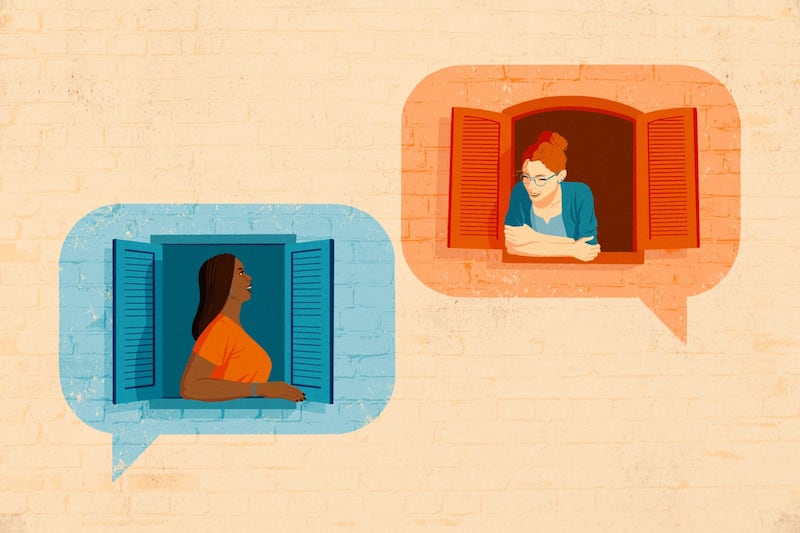I am grateful for words. I love to read them, I love to write them, I love to speak them and I love to listen to them. I know that words have power.
Words have the power to soothe. I have used words as I sit with a mother laboring to bring her child into the world. I have used words to comfort and soothe a scared child. Words have soothed me in times of deepest grief.
Words have the power to heal, mind, heart and body. Yes, it can take more than words, but words do make a difference. Written words, in the form of journaling, have lasting impacts. James Pennebaker began researching journaling as a path to healing and growth in the 1970s. He and subsequent researchers have shown repeatedly that even just 20 minutes a day of journaling can have positive psychological and emotional benefits, including what researchers have called “post-traumatic growth.”
Words have the power to lift and inspire. I think of the words of scripture, powerful words of song or books that leave me thinking about them long after I have closed the final pages. I put both the Narnia series and “The Lord of the Rings” trilogy in that category. And what about these words? “We the people of the United States, in order to form a more perfect union ...”
Words can harm
Words also have the power to hurt, inflame, incite, dehumanize and even destroy. Angry, harsh words thrown at a child can leave scars well into adulthood. Contemptuous words snarled at a spouse can lead to divorce. And while a word does not kill in the way that a bullet does, words can and do lead to death. People have died after being cyberbullied or sextorted. In some countries, words have been used on social media to organize genocidal attacks.
Since the Charlie Kirk killing last week, there have been a plethora of pleas to turn down the political heat. Gov. Spencer Cox has used multiple opportunities to plead for the nation to find an off-ramp, a plea echoed by founders of the brand-new online resource TurnToward.us. The governor is also directly addressing students, urging them not to succumb to the politics of hate. Sadly, there are also loud and vociferous calls for revenge and retribution.
Sometimes, I think there is a mistaken impression that if we are trying to be peacemakers, that means we are pushovers, that we just “go along to get along.” ‘Tis not so. It’s the whole premise behind Disagree Better, Living Room Conversations, The Dignity Index, Waymakers and so many other organizations working to bridge divides.
Lisa Halverson, a professor at Utah Valley University, reminds us that “Americans have a First Amendment responsibility to allow free speech. Prohibiting it leaves two victims, as Dr. Lucas Morel taught on campus last week: the one who cannot speak and the one who cannot listen, weigh and consider.”
How can words bridge divides?
I know that for me, I always want to know the how. It’s one thing to have a conversation with someone who disagrees with me on who the best football player is. It’s quite another to learn how to listen to and really hear someone who is shouting in my face. How do I have a conversation with someone who calls me evil or part of a cult because of my religious beliefs? How do I bridge divides with someone who says people who look like my children shouldn’t be allowed in this country? What if I am afraid?
First, I want to assure you that it’s OK to be afraid — normal, even. We live in scary times.
Next, there have been so many great pieces of advice given in these pages and elsewhere on de-escalating intensely emotionally charged situations. Be sure to read the piece on taking the off-ramp from high conflict and the one on how disagreement is healthy but hate is not. Watch the governor’s address to Utah’s youth on rejecting the politics of hate.
I have a few additional words on using the power of your words. Stay curious and open to the words of others. “Tell me more” or “help me understand” can be powerful. Listen, as Stephen Covey urged, with the intent to understand and not the intent to reply. Imagine the other person as someone you love deeply. How would you talk to them and how would you listen to them if they were the ones who disagreed with you?
Use your words to be stonecatchers, when stones of harsh and hateful words are hurled at others. Being a stonecatcher might mean using our voices to amplify those voices not being heard, using our breath to speak for those who cannot breathe. It could mean speaking up while others either remain silent or are loudly shouting that the person on the ground “deserved” to be stoned, raped, arrested, shot or (fill in the blank).
Use your words to write to your elected officials, to your local paper, or to your neighbor. Learn about other people and groups of people by listening to and reading about their lived experiences. Remember that just because it hasn’t happened to you doesn’t mean it hasn’t happened.
Finally, sometimes, it’s ok — and appropriate — to be silent. You do not need to attend every argument you are invited to. Put down your phone. Walk away from your computer. Watch a funny movie. Hold a baby. Scrub your floor. Play a vigorous game of pickleball. Get a massage. Then, when you’re ready, use your words again.


